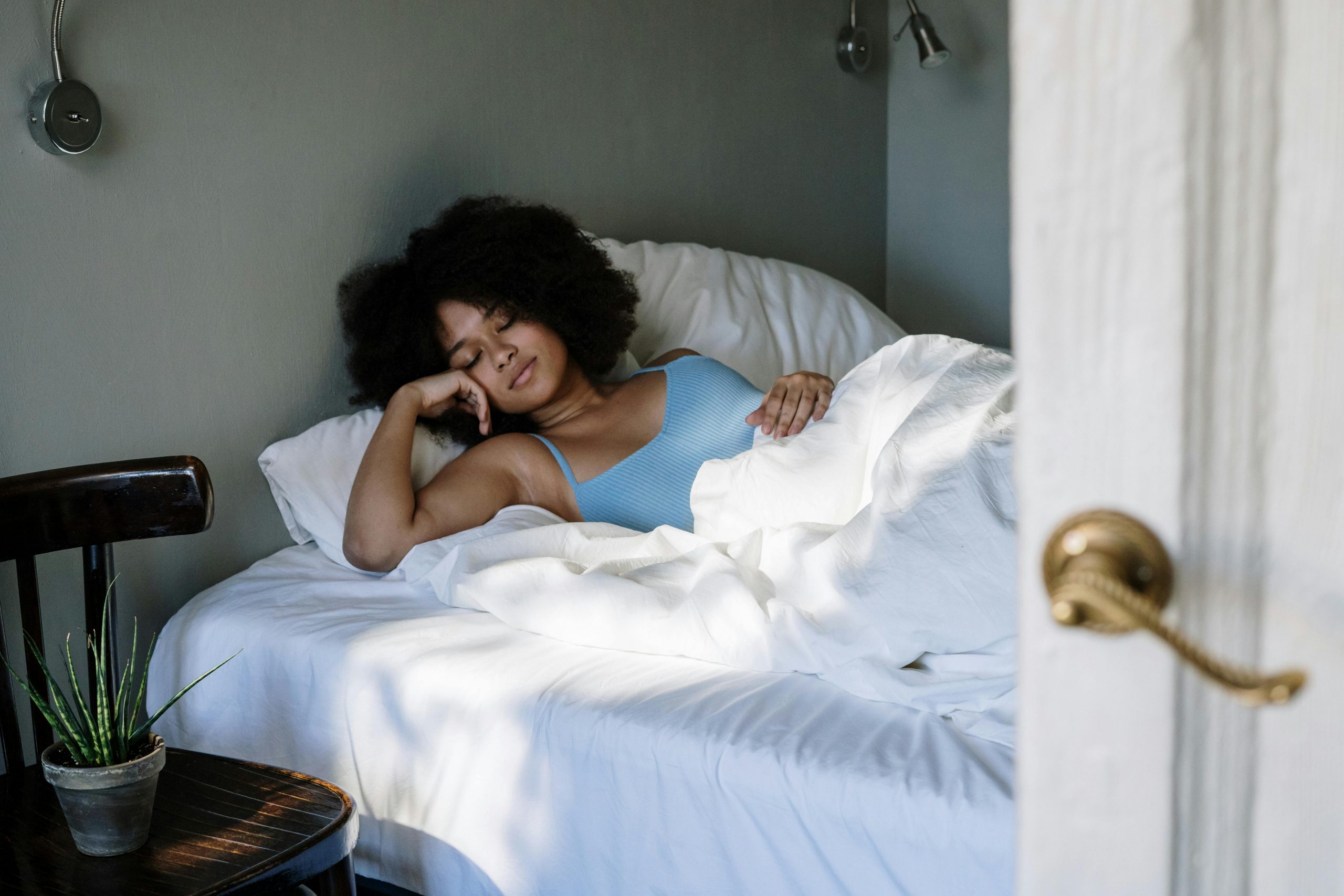
Whatever life throws at us, there is very little that a good night’s sleep can’t fix. But what if you’re struggling to get your forty winks each night?
Seeing as we spend an average of 26 years of our lives asleep it’s important that we get it right, so we spoke to sleep specialist, Dr Verena Senn to get her expert advice on the subject.
Keep a regular schedule
We all know that feeling of a disordered sleep pattern when life gets busy. Suddenly packed weekends and a hectic work week can combine to create lots of early mornings and late nights, not good for your sleep schedule.
Your body likes a consistent routine, so while it’s ok to change it every now and again, not having any regular bedtime can disrupt your sleep.
“A regular wake time helps to set the body’s natural clock (circadian rhythm) and prevents oversleeping. Avoid daytime naps especially if you find difficult to fall asleep or staying asleep through the night,” Dr Verena advises.

Avoid stimulants before bedtime
This is one we all know already, but something most of us don’t practice. Dr Verena advises avoiding; “any kind of stimulants such as alcohol, caffeine and nicotine before bedtime as their consumption can disrupt sleep and can cause night-time awakenings.”
So, it might be time to switch that evening cup of tea in front of the TV for some de-caf!
Invest in a good mattress
If our beds are where we spend so much of our time, surely they should be as comfortable as possible? Investing in a great quality mattress is key and Dr Verena has some advice on choosing the right one for you.
“A research study showed, that when comparing mattresses with over-intermediate and over-even pressure distribution, the mattress with intermediate pressure distribution increased the amount of deep sleep, the sleep cycle essential for your memory, essentially increasing sleep quality.”
“In addition, the users reported that they had easier time falling asleep on the intermediate pressure mattress compared to the other ones.”

Exercise means better sleep
Working out during the day can really help with getting a deep and restful night of sleep. This is because “exercise stimulates the body to secrete the stress hormone cortisol, which helps activate the alerting mechanism in the brain.”
If you workout regularly you’ll find the quality of your sleep improving. However Dr Verena warns against exercise too close to your bedtime; “An alert brain will have trouble falling asleep. For optimum results, try to finish exercising at least three hours before bed or work out earlier in the day.”
Keep the bedroom a tech-free zone
Something many of us are guilty of is using our devices in bed. Whether it’s your phone, the TV or tablet, they can all make falling asleep more difficult.
Dr Verena explains; “The artificial blue light emitted from these electronic devices delays your body’s internal clock, suppressing the release of the sleep-inducing hormone melatonin, and making it more difficult to fall asleep.”

If you’re in need of a new mattress, then look no further than the Emma Original, Europe’s most awarded mattress in 2019. Locally made in Ireland, it’s delivered to your door within three working days, and it comes in a box so it’s easy to carry up the stairs if you live in an apartment.
You can also test it out in your own home for 200 nights risk-free, with a ten year
warranty, for that extra peace of mind. So, why all the awards, you wonder? Well, firstly, it’s super comfortable to sleep on for all types of sleepers (whether you like
sleeping on your side, your back or your front); it’s medium-firm so it provides exceptional support and can help relieve back pain.
The mattress material is super breathable so if you run hot while you sleep, it
helps to dissipate that heat and keep you cool. And for those who have a partner who loves to toss and turn, the Emma Original minimises motion transfer,
ensuring an uninterrupted sleep.
Head to emma-mattress.ie for more information!




